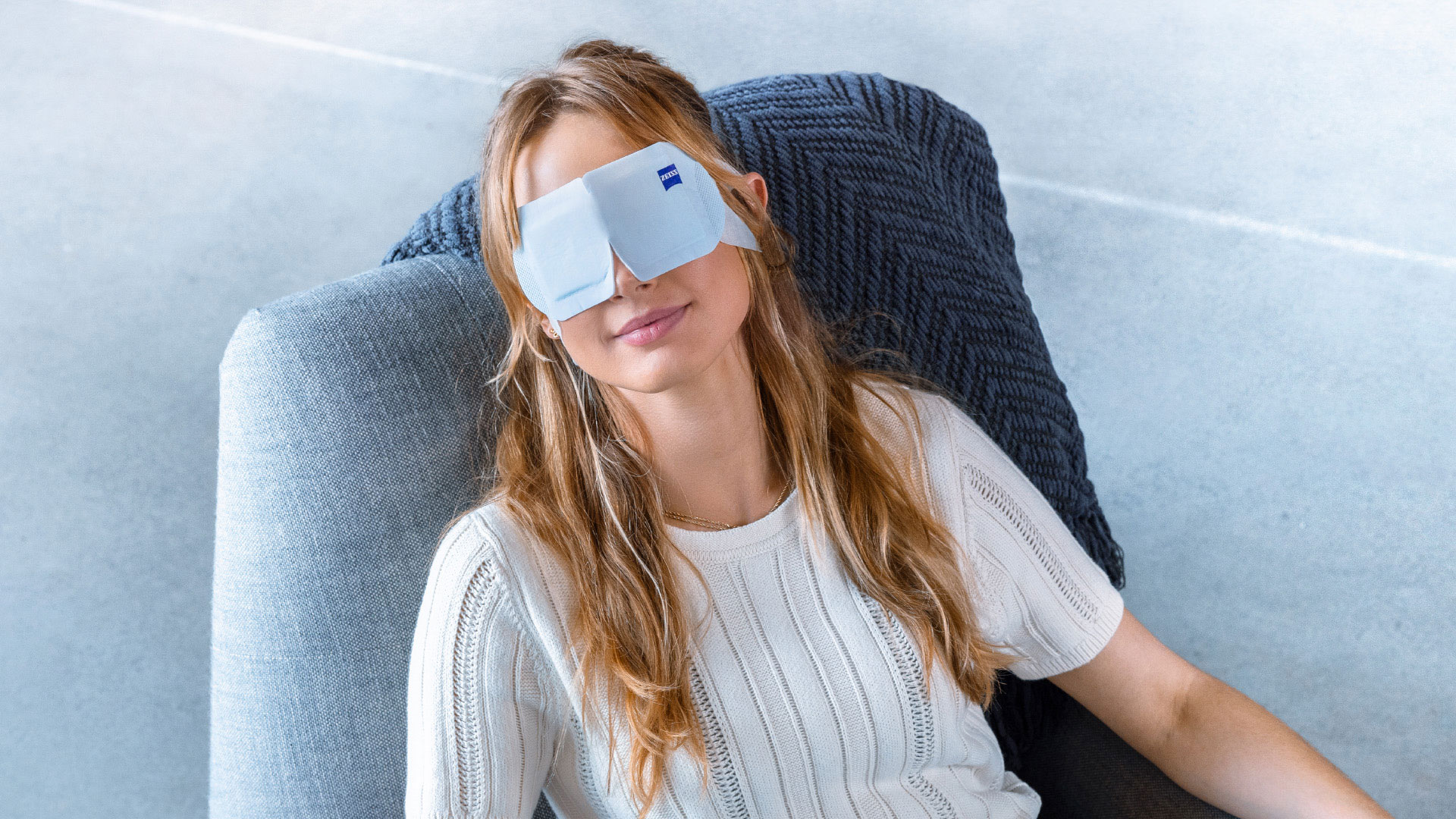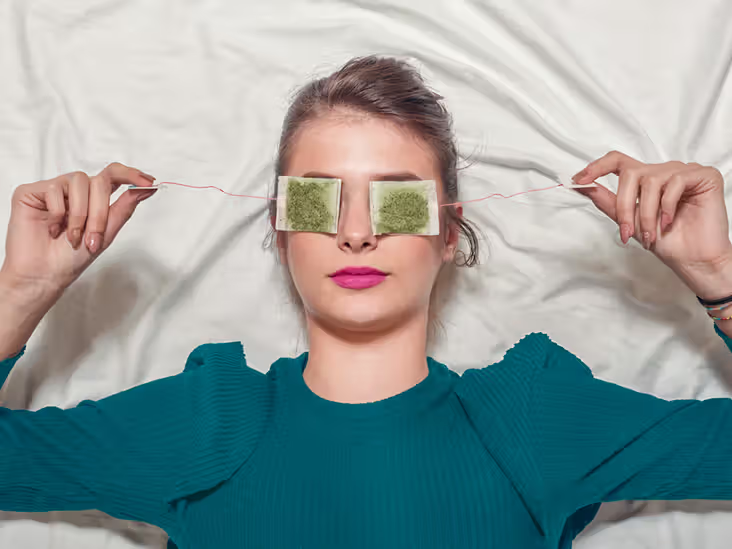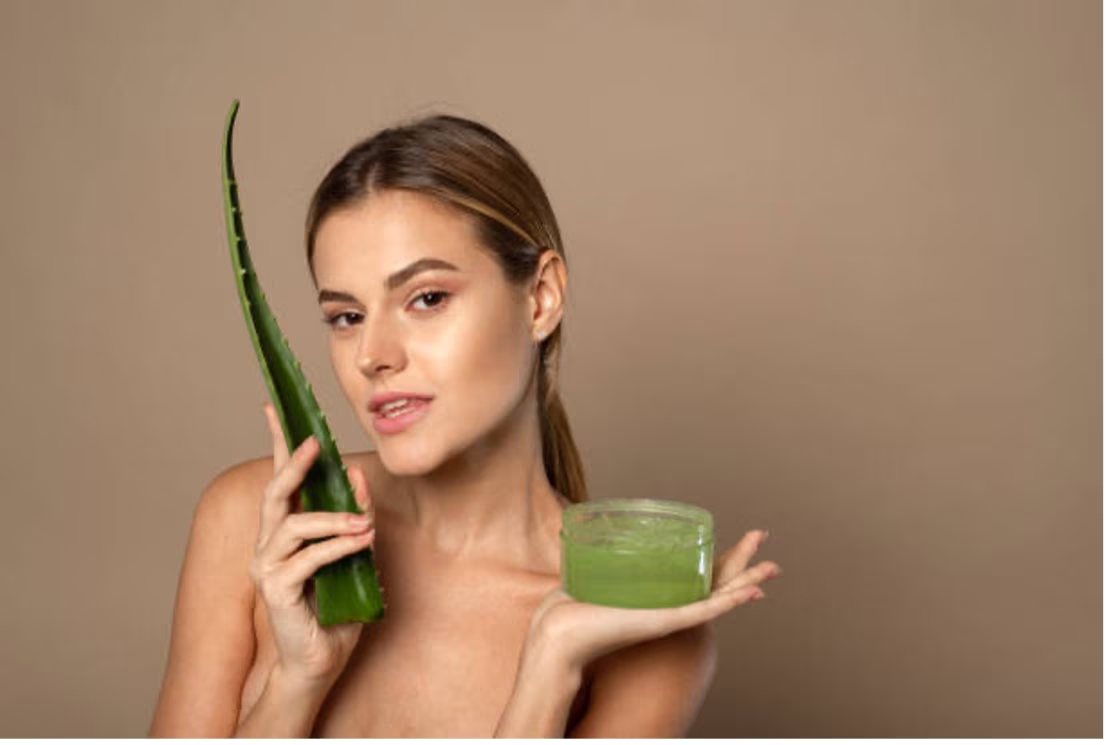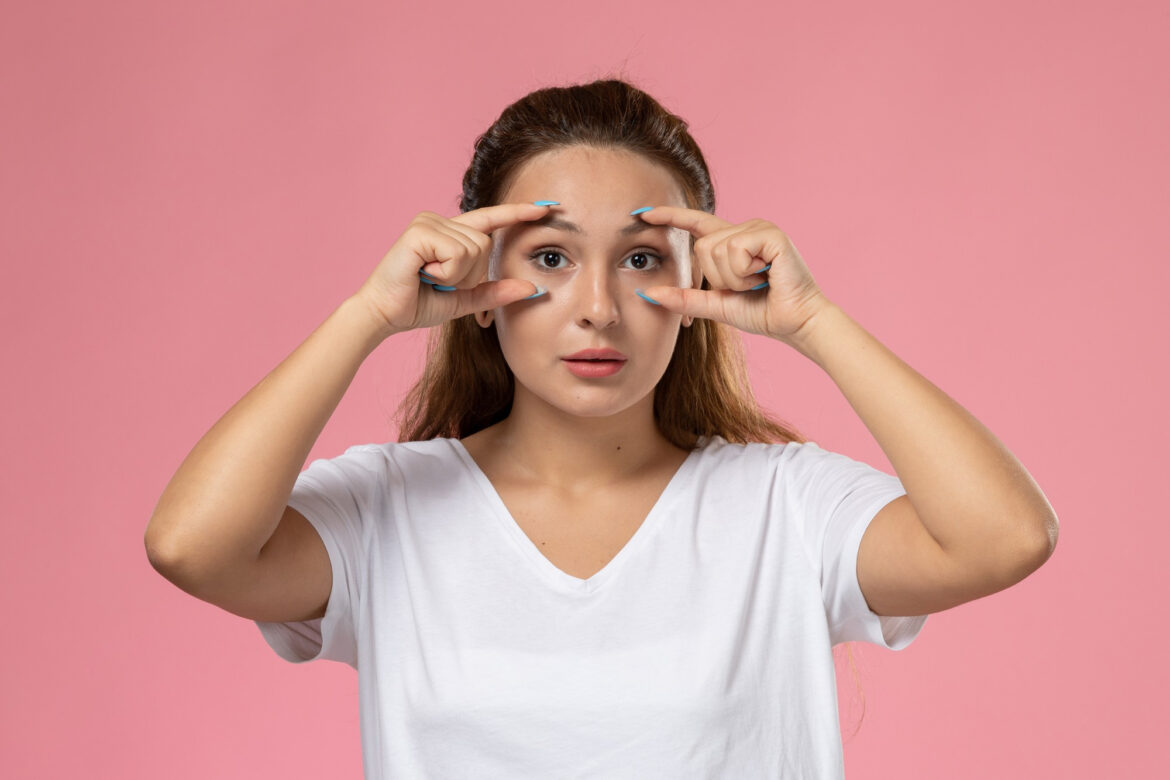Puffy eyes are common and can affect anyone. From not getting enough sleep to seasonal allergies, many things can cause puffy eyes. While puffy eyes are usually not a serious health concern, they can make you feel self-conscious and uncomfortable. The good news is that there are many simple ways to reduce puffiness and get your eyes back to looking fresh.
In this guide, we’ll go over what causes puffy eyes, quick fixes you can try at home, and tips on preventing puffiness in the first place. Let’s get started!
Also Read: 7 Home Remedies for Managing High Blood Pressure
Table of Contents
ToggleHow to Fix Your Puffy Eyes?
1. What Causes Puffy Eyes?
Common Reasons for Puffy Eyes
Understanding the cause of your puffy eyes can help you find the best solution. Here are some common reasons:
- Lack of Sleep – Poor sleep can lead to fluid buildup around the eyes, making them appear swollen.

- Diet High in Salt – Eating salty foods can cause water retention, leading to puffiness.
- Allergies – Allergies can cause swelling and inflammation around the eyes.
- Aging – As we age, the skin around the eyes becomes thinner, which can make puffiness more noticeable.
- Genetics – Sometimes, puffy eyes are simply a trait passed down from family members.
If you’re not sure why your eyes are puffy, consider keeping a journal to track your sleep, diet, and other habits. This can help you identify patterns and find solutions.
2. Quick Fixes for Puffy Eyes
How to Reduce Puffiness in Minutes
Sometimes, you just need a quick fix for puffy eyes. Here are some simple methods that can help reduce swelling fast:
- Cold Compress – Applying something cold can reduce swelling. Wrap ice cubes in a cloth or use a cold spoon to press gently against your eyes for a few minutes.

- Cucumber Slices – Cucumber slices are known for their cooling effect. Place a slice on each eye for about 10 minutes.
- Cold Tea Bags – After making tea, save the bags and chill them. Green tea bags are especially good because they contain antioxidants that help reduce inflammation. You can find quality green tea here on Amazon.

Also Read: 10 Effective Breathing Exercises to Try During Stress
3. Lifestyle Tips for Preventing Puffy Eyes
Small Changes That Make a Big Difference
Making small adjustments to your daily routine can prevent puffy eyes. Here are some lifestyle tips:
- Get Enough Sleep – Aim for 7-8 hours of sleep each night to prevent tired, swollen eyes.
- Limit Salt Intake – Try to cut down on salty snacks, which can lead to water retention and puffiness.
- Stay Hydrated – Drinking plenty of water helps flush out excess salt and keeps your skin hydrated.

- Elevate Your Head While Sleeping – Sleeping with an extra pillow can help prevent fluid from pooling around your eyes.
- Avoid Rubbing Your Eyes – Rubbing can irritate the delicate skin around the eyes and increase puffiness.
For more ideas on reducing salt intake, check out this helpful guide on Heart UK’s website.
4. Home Remedies for Puffy Eyes
Easy, Natural Solutions
If you prefer natural remedies, here are some easy ways to reduce puffy eyes at home:
- Aloe Vera Gel – Aloe vera has anti-inflammatory properties that can help reduce puffiness. Apply a small amount around your eyes for a soothing effect. Find pure aloe vera gel on Holland & Barrett.

- Potato Slices – Potatoes contain enzymes that can help tighten the skin. Place a thin slice on each eye for 10 minutes.
- Milk Compress – Dip a cotton ball in cold milk and place it over your eyes for a cooling effect. The protein in milk can also nourish the skin
Also Read: What is Adult Swaddling? Can it Help You Relax?
5. Effective Skincare Products for Puffy Eyes
What to Look for in Eye Creams
If you’re looking for skincare products to reduce puffiness, choose products with ingredients like caffeine, hyaluronic acid, and peptides. These ingredients work to reduce swelling and hydrate the delicate skin around the eyes.
Product Recommendations
- The Inkey List Caffeine Eye Cream – Caffeine helps reduce puffiness by constricting blood vessels, making this cream effective and affordable. Shop here.
- CeraVe Eye Repair Cream – Contains hyaluronic acid and niacinamide to hydrate and reduce puffiness. Find it on Amazon.
- Origins GinZing Eye Cream – This eye cream contains caffeine and brightens the under-eye area, perfect for tired-looking eyes.
6. Eye Massage Techniques for Puffy Eyes
Benefits of Eye Massages
Gently massaging the eye area can help reduce fluid buildup, promote circulation, and relax the muscles around your eyes. An eye massage doesn’t take long and can be very effective.
How to Do an Eye Massage
- Warm Up Your Hands – Rub your hands together to warm them up.
- Apply Gentle Pressure – Using your ring finger, gently press along the under-eye area from the inner to the outer corner.
- Circular Motions – Use circular motions around the eyes, focusing on the temples and above the brows.
You can enhance the massage by using a roller or gua sha tool, like these options on Lookfantastic.
7. Medical Treatments for Severe Puffiness
When to See a Dermatologist
If puffiness is persistent and doesn’t respond to home remedies, consider consulting a dermatologist. Some medical treatments can help, especially if the puffiness is due to allergies, genetics, or other underlying causes.
Treatment Options
- Topical Treatments – Prescription creams may help reduce puffiness by strengthening the skin.
- Injectable Fillers – Fillers can be used under the eyes to reduce the appearance of bags, but they should only be done by a qualified professional.
- Surgery – In severe cases, a procedure called blepharoplasty may be considered to remove excess skin or fat around the eyes.
For more information on eye treatments, visit the NHS website.
8. Addressing Allergies to Reduce Puffiness
How Allergies Cause Puffy Eyes
Allergies can trigger inflammation around the eyes, leading to redness and swelling. If you notice puffiness along with itching or redness, allergies could be the cause.
Tips for Managing Allergies
- Take Antihistamines – Over-the-counter antihistamines can reduce swelling caused by allergies. Consult your doctor before use.
- Avoid Allergens – Try to identify and avoid common allergens like dust, pollen, or pet dander.
- Use Hypoallergenic Products – Choose skincare and makeup products labeled as hypoallergenic to avoid irritation.
If allergies are a common cause of your puffy eyes, you can find more tips on managing them from Allergy UK.
9. Diet Tips to Reduce Eye Puffiness
Foods to Help and Foods to Avoid
Your diet can affect how your skin looks, including the area around your eyes. A healthy diet can help reduce puffiness, while certain foods can make it worse.
- Eat Hydrating Foods – Water-rich foods like cucumbers, watermelon, and oranges can keep your skin hydrated.
- Limit Salty Foods – Too much salt causes water retention, leading to puffiness.
- Include Anti-Inflammatory Foods – Foods rich in antioxidants, like berries, green tea, and leafy greens, help fight inflammation.
For more diet tips for healthy skin, visit BBC Good Food.
10. Preventive Steps for Long-Term Care
How to Keep Puffy Eyes at Bay
Consistency is key when it comes to managing puffy eyes. Here are some steps to include in your routine:
- Daily Skincare Routine – Include an eye cream that hydrates and strengthens the skin around your eyes.
- Regular Eye Massage – Incorporate gentle massages into your routine to boost circulation.
- Manage Stress – Stress can affect your sleep and skin, so practice relaxation techniques like meditation or deep breathing.
By taking preventive steps, you can keep your eyes looking fresh and avoid puffiness in the long run.
Conclusion
Brighten Up Your Eyes and Feel Confident
Puffy eyes are common, but they don’t have to be a constant problem. With simple home remedies, lifestyle adjustments, and the right products, you can reduce puffiness and feel confident in your appearance. Whether you need a quick fix or a long-term solution, the tips in this guide can help you manage and prevent puffy eyes effectively.
Suggested Resources
- Lookfantastic – Shop eye care products
- Boots – Find eye creams and skincare essentials
- Holland & Barrett – Explore natural remedies and supplements
FAQ: How to Fix Your Puffy Eyes? A Complete Guide
1. What causes puffy eyes, and why do they sometimes appear overnight?
Puffy eyes are caused by fluid retention in the tissue around your eyes. This can happen for several reasons, including lack of sleep, high salt intake, allergies, dehydration, and even sleeping position. Overnight, fluid can accumulate due to lying down, making the swelling more noticeable in the morning. This can be worsened by factors like late-night snacking, drinking alcohol, or insufficient hydration, all of which affect your body’s ability to balance fluids
2. Are there any quick remedies for reducing puffiness in the morning?
Yes, several quick remedies can help reduce puffiness in minutes. You can use a cold compress, such as chilled cucumber slices or a cold spoon, to reduce swelling. Applying an eye cream with caffeine or using a green tea bag that’s been cooled in the fridge can also help, as caffeine and antioxidants reduce swelling by constricting blood vessels. These quick remedies temporarily reduce puffiness and make the skin look firmer.
3. Does drinking more water help with puffy eyes?
Absolutely. Drinking water helps flush out excess salt from your body and reduces fluid retention, which is a common cause of puffiness. Aim to drink at least 8 glasses of water a day to stay hydrated, especially if you consume salty foods or caffeine, which can be dehydrating. When you’re well-hydrated, your body is less likely to hold onto extra fluid, helping you avoid puffiness and keeping your skin healthy.
4. What are the best ingredients to look for in eye creams to reduce puffiness?
Look for eye creams with ingredients like caffeine, hyaluronic acid, peptides, and green tea extract. Caffeine constricts blood vessels, reducing swelling, while hyaluronic acid hydrates and plumps the skin, which minimizes the appearance of puffiness. Peptides can improve skin elasticity, making the area look firmer, and green tea extract has anti-inflammatory properties. Together, these ingredients target puffiness while nourishing the delicate skin around the eyes.
5. Can lack of sleep really cause puffy eyes, and how can I prevent it?
Yes, insufficient sleep can cause puffy eyes because it disrupts your body’s natural balance, leading to fluid retention around the eyes. To prevent this, try to get 7-8 hours of quality sleep each night and elevate your head slightly with an extra pillow. This elevation helps prevent fluid from pooling around your eyes overnight. Also, avoiding screens an hour before bed and practicing relaxation techniques can improve your sleep quality, further helping to prevent puffy eyes.
6. How does diet affect the appearance of puffy eyes?
Diet plays a significant role. High-salt foods cause water retention, leading to puffiness, especially in the delicate eye area. Alcohol and caffeine can also dehydrate you, making your body retain fluids. To minimize puffiness, opt for a balanced diet rich in water-dense foods like cucumbers, melons, and leafy greens. These foods keep you hydrated and reduce the likelihood of water retention. Cutting back on processed foods, sugary snacks, and excessive salt can also make a noticeable difference.
7. Are there natural remedies for puffy eyes that are safe to use regularly?
Yes, several natural remedies can help reduce puffy eyes safely. Cold cucumber slices and chilled green tea bags are popular for their cooling, anti-inflammatory effects. Aloe vera gel is another great option; it soothes and tightens the skin around the eyes. You can also use potato slices, which contain enzymes that help tighten the skin and reduce puffiness. These remedies are gentle and safe enough to be used daily if desired.
8. Can allergies cause puffy eyes, and how can I manage them?
Yes, allergies are a common cause of puffy eyes, as they trigger inflammation and fluid retention around the eye area. If your puffy eyes are due to allergies, taking an antihistamine can help reduce swelling. Keeping windows closed during high-pollen days, using hypoallergenic bedding, and dusting regularly can also minimize exposure to allergens. You may also want to use hypoallergenic skincare products and makeup to avoid irritation that can worsen puffiness.
9. Is eye massage effective for reducing puffy eyes?
Yes, a gentle eye massage can help reduce puffy eyes by improving blood circulation and lymphatic drainage around the eye area. Use your ring finger to apply light pressure in small circular motions around your eyes. You can also use an eye roller or gua sha tool to enhance the effect. Focus on the areas around the brow bone and under the eye to stimulate circulation, reduce fluid buildup, and minimize puffiness. However, be gentle, as the skin around the eyes is very delicate.
10. When should I consider seeing a dermatologist for my puffy eyes?
If you experience persistent puffy eyes that don’t improve with lifestyle changes, home remedies, or over-the-counter products, it might be time to consult a dermatologist. Chronic puffiness could be a sign of underlying health issues, such as allergies, thyroid problems, or sinus issues. A dermatologist can provide specific treatments, such as prescription creams or professional procedures like fillers, to address severe cases. Always seek professional advice if puffiness is affecting your confidence or daily life.
